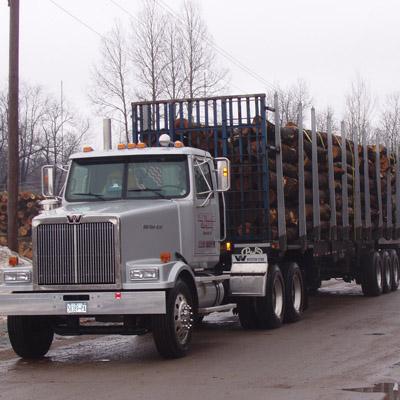Institutional Arrangements for Working Forests

What is a "working forest" and whose interests are represented in this increasingly popular figure of speech? People living in different types of communities have different personal and economic interests in forests, have different forest management priorities, and attach different meanings to the phrase "working forest." Priorities in the Northern Forest are changing to contend with amenity-based growth surrounding tourism and recreation opportunities; timber industry consolidation resulting in sales of former timber lands, factory closures, and loss of timber-based jobs; pressure from development and loss of forest land to subdivisions; and fragmentation of remaining forests.
NSRC researchers conducted a survey in two northern New York towns: Saranac Lake, a transitional amenity-based economy, and Boonville, a traditional timber-dependent economy. Through data analysis researchers determined how community economic orientation, professional roles, and recreational interests influence values people place on goods and services that forests provide. Using more qualitative measures, they also uncovered what meanings are embedded in the term "working forest."
The survey yielded four distinct orientations to forest management -- environmental, recreational, large-scale timber, and small-scale timber -- highlighting the complexity of politics and policy in the region. Important differences in management orientations were observed based on where people lived, their professional roles, and their recreational interests. Analysis of how the term "working forest" is used in political language and how it is defined by local residents yielded additional information that can support community dialogue and policy making.
Download printable version [PDF]
Download full final report [PDF]
